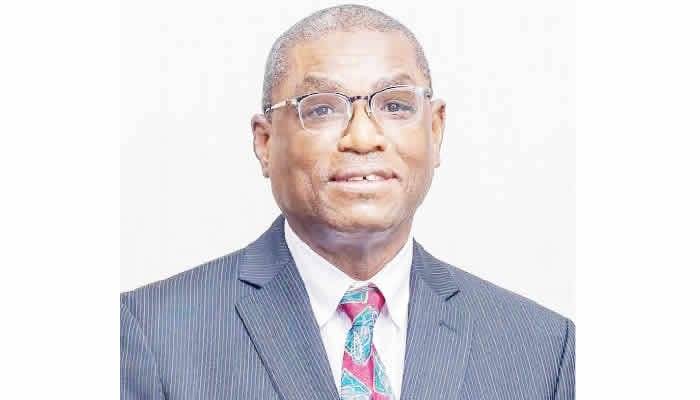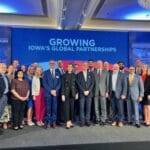Main Points In Hindi (मुख्य बातें – हिंदी में)
-
कृषि में विवर्थ निवेश की कमी: डॉ. इमैनुएल ओकोग्बेनिन ने व्यक्त किया कि नाइजीरिया और पूरे अफ्रीका में कृषि विकास के लिए सरकारी निवेश बहुत कम है। अफ्रीकी देशों को अपनी राष्ट्रीय बजट का 10 प्रतिशत कृषि पर खर्च करने की आवश्यकता है, जबकि अधिकांश केवल चार प्रतिशत से कम आवंटित कर रहे हैं।
-
उपज का अंतर और तकनीकी उपयोग: उन्होंने कहा कि अफ्रीका में कृषि उत्पादकता के क्षेत्र में एक बड़ा अंतर है, जहाँ रतालू और कसावा जैसी फसलों का उत्पादन क्षमता का 70 से 90 प्रतिशत तक पहुँचता नहीं है। इसका एक मुख्य कारण यह है कि किसान आवश्यक तकनीकों का उपयोग नहीं कर रहे हैं।
-
एकीकृत प्रयास की आवश्यकता: डॉ. ओकोग्बेनिन ने कृषि क्षेत्र में सुधार के लिए सभी हितधारकों से एकजुट होकर काम करने का आह्वान किया। उन्होंने किसानों की प्रौद्योगिकी को अपनाने और उपयोग करने की क्षमता को बढ़ाने के लिए प्रयास करने की बात की।
-
खाद्य सुरक्षा का संकट: उन्होंने चिंता व्यक्त की कि अगर प्रौद्योगिकी का सही उपयोग नहीं हुआ, तो भविष्य में खाद्य सुरक्षा की समस्या उत्पन्न हो सकती है।
- अवसरों की जागरूकता: डॉ. ओकोग्बेनिन ने कहा कि कृषि व्यवसाय में निवेश और भागीदारी के अवसर हैं और यह पैसा कमाने वाला उद्यम है। इसलिए, लोगों को इस क्षेत्र में आने और संगठित काम करने के लिए प्रेरित किया जाना चाहिए।
Main Points In English(मुख्य बातें – अंग्रेज़ी में)
Here are the main points from the provided text:
-
Need for Investment in Agriculture: Dr. Emmanuel Okogbenin emphasized that proper funding and technology utilization are crucial for improving crop yields in Nigeria and Africa. He criticized the limited government focus on agricultural development in Nigeria and across the continent.
-
Neglect by African Leaders: He condemned the neglect and insufficient investment in the agricultural sector by African leaders, highlighting that there is a lack of adequate efforts to address food security issues on the continent.
-
Disparity in Investment: Despite the African Union’s Malabo Declaration, which calls for governments to allocate 10% of their national budgets to agriculture, most African nations, including Nigeria, allocate significantly less (often under 4%).
-
Potential of Nigeria’s Agriculture: Nigeria is a strategic player in agriculture due to its large population and its status as the world’s largest producer of cassava and yams. However, the country has been underperforming in terms of production capacity, with many farmers unable to achieve their full production potential.
- Focus on Capacity Building and Technology Adoption: The African Agricultural Technology Foundation (AATF) aims to prepare farmers not only to adopt new technologies but also to utilize them effectively. The organization is also focused on creating awareness about the agricultural business as a profitable venture and fostering networking among stakeholders in the agricultural value chain.


Complete News In Hindi(पूरी खबर – हिंदी में)
नैरोबी, केन्या में अफ्रीकी कृषि प्रौद्योगिकी फाउंडेशन के कार्यक्रम और व्यावसायीकरण के निदेशक, डॉ. इमैनुएल ओकोग्बेनिन ने कहा है कि उचित वित्त पोषण और प्रौद्योगिकी के उपयोग से नाइजीरिया और अफ्रीका में उपज में सुधार करने में मदद मिलेगी।
उन्होंने बताया दक्षिण-दक्षिण पंच मंगलवार को कहा गया कि सरकार नाइजीरिया और पूरे अफ्रीकी महाद्वीप में कृषि विकास पर बहुत कम ध्यान दे रही है।
उन्होंने अफ्रीकी नेताओं द्वारा कृषि व्यवसाय में उपेक्षा और कम निवेश की भी निंदा की और कहा कि महाद्वीप खाद्य सुरक्षा को संबोधित करने के लिए पर्याप्त प्रयास नहीं कर रहा है।
उन्होंने कहा, “ऐसी स्थिति जहां विकसित दुनिया के विपरीत, अफ्रीका में कृषि व्यवसाय क्षेत्र के विकास को सरकार से बहुत कम धन मिला, अस्वीकार्य है।
“अफ्रीकी नेता कृषि में पर्याप्त निवेश नहीं कर रहे हैं। यदि आप मलाबो घोषणा पर नज़र डालें, तो अफ्रीकी सरकारों को अपने राष्ट्रीय बजट का 10 प्रतिशत कृषि पर खर्च करना होता है, लेकिन अधिकांश चार प्रतिशत से भी कम आवंटित करते हैं।
“अफ्रीका में, नाइजीरिया अपनी आबादी के कारण एक बहुत ही रणनीतिक देश है। नाइजीरिया दुनिया में रतालू और कसावा का सबसे बड़ा उत्पादक है।
“हालाँकि, हम उस स्तर तक उत्पादन नहीं कर पाए हैं जैसा हमें करना चाहिए। अफ़्रीका की उपज का अंतर इन फसलों की उपज क्षमता का लगभग 70 से 90 प्रतिशत है। इसका मतलब यह है कि किसानों को पूरी क्षमता नहीं मिल पा रही है।
“ऐसा इसलिए हो सकता है क्योंकि किसान प्रौद्योगिकी नहीं खरीद रहे हैं और यदि ऐसा होता है, तो उपज में सुधार नहीं होगा और भोजन की कमी हो सकती है।
“एएटीएफ के साथ मेरी स्थिति के साथ हम जो करने की कोशिश कर रहे हैं उनमें से एक यह देखना है कि हम किसानों को न केवल प्रौद्योगिकी को अपनाने के लिए कैसे तैयार कर सकते हैं बल्कि यह भी देख सकते हैं कि वे इसका कितना अच्छा उपयोग करते हैं। और लोगों को यह बताना कि कृषि व्यवसाय में एक अवसर है।”
उन्होंने हितधारकों से इस क्षेत्र को आगे बढ़ाने के लिए जानबूझकर प्रयास करने का आह्वान किया; यह कहते हुए कि दुनिया भर में कृषि व्यवसाय पैसा कमाने वाला उद्यम है।
उन्होंने कहा, “हम क्षमता निर्माण कर रहे हैं। हम किसानों को प्रौद्योगिकियों के बारे में जानकारी प्रदान कर रहे हैं। हम जागरूकता पैदा कर रहे हैं और किसानों को सही संचार दे रहे हैं।
“हम नेटवर्किंग और श्रृंखला के प्रत्येक हितधारक को एक-दूसरे से जोड़कर एक मूल्य श्रृंखला बनाने का भी प्रयास कर रहे हैं। इसलिए हम लोगों को यह समझने के लिए कह रहे हैं कि जब आप एक साथ काम करते हैं तो लाभ होता है।
Complete News In English(पूरी खबर – अंग्रेज़ी में)
Dr. Emmanuel Okogbenin, the Director of Programs and Commercialization at the African Agricultural Technology Foundation in Nairobi, Kenya, stated that proper funding and the use of technology can help improve crop yields in Nigeria and Africa.
He mentioned this during an interview with South-South Punch on Tuesday, highlighting that the Nigerian government and many African nations pay little attention to agricultural development.
He criticized African leaders for neglecting agriculture and making low investments, noting that the continent is not making sufficient efforts to address food security.
He remarked, “It is unacceptable for Africa to receive very little funding from the government for the development of the agricultural sector compared to the developed world.”
“African leaders are not investing adequately in agriculture. If you look at the Malabo Declaration, African governments are supposed to spend 10 percent of their national budgets on agriculture, but most allocate less than four percent.”
“In Africa, Nigeria is strategically important due to its large population. Nigeria is the world’s largest producer of yam and cassava.
“However, we have not reached the production levels we should. The yield gap in Africa for these crops is around 70 to 90 percent, which means farmers are not achieving their full potential.
“This might be because farmers are not adopting technology, and if that continues, yields will not improve, leading to food shortages.”
“In my role with AATF, one of our goals is to see how we can prepare farmers to not only adopt technology but also utilize it effectively, and to inform them that there are opportunities in agricultural business.”
He called on stakeholders to actively work to promote this sector, stating that agricultural business is a profitable venture worldwide.
He added, “We are building capacity. We provide farmers with information about technologies. We are raising awareness and giving farmers the right communication.”
“We are also trying to create a value chain by networking and connecting all stakeholders in the chain. Therefore, we encourage people to understand that working together brings benefits.”








